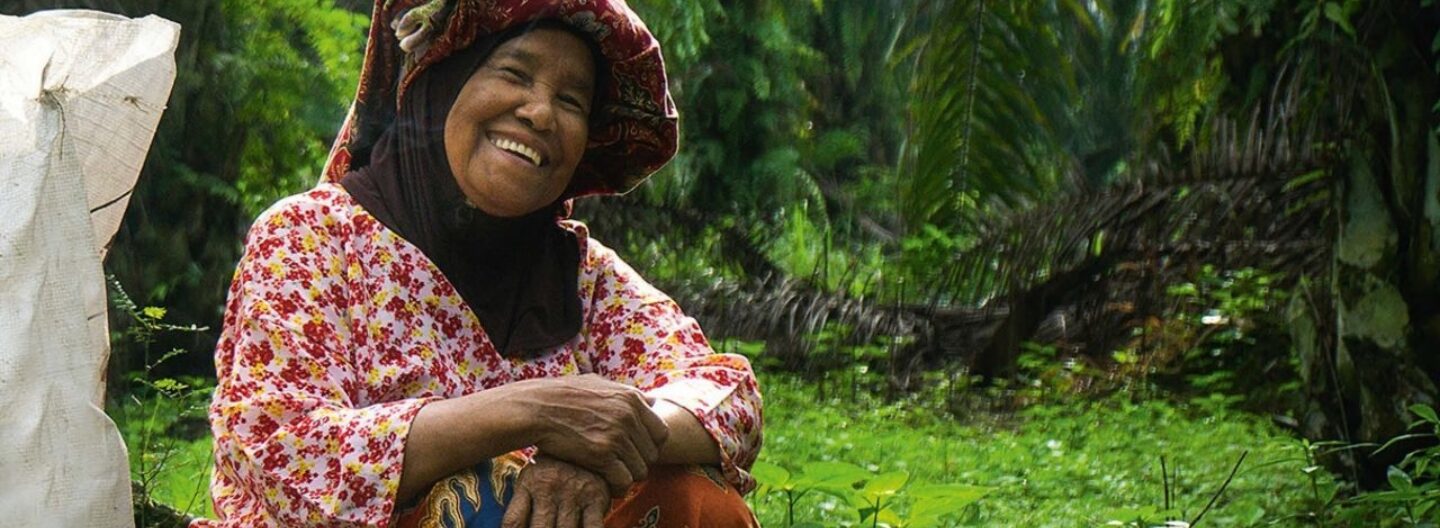
BASF's Palm Progress Report 2019
Oct 28, 2020News Release
October 28, 2020
BASF makes further progress toward reaching its 2020 Palm Commitment of sourcing 100 percent certified sustainable palm (kernel) oil
- Palm Progress Report: 4th edition published featuring 2019 figures
- Sourcing: 140,400 metric tons of certified palm kernel oil
- Traceability: 90 percent of global palm footprint back to the oil mill level
Ludwigshafen, Germany – October 28, 2020 – BASF today launched the fourth edition of its Palm Progress Report featuring figures for 2019. One of BASF’s key renewable raw materials is palm kernel oil and its primary derivatives which are mainly used to produce ingredients for the cosmetics, detergent and cleaner industries, as well as in human nutrition.
During the past year, the company purchased 140,400 metric tons of certified sustainable palm kernel oil, representing around 83,5 percent of the company’s total volume – a plus of almost 14 percent compared to 2018. With this, the company made further progress reaching its Palm Commitment, first published in 2011 and extended in 2015, procuring all oils only from RSPO-certified sources by 2020. In addition, BASF was able to achieve traceability for 90 percent of its global palm footprint of 382,000 metric tons back to the oil mill level in 2019.
As one of the leading global processors, BASF committed to regularly publish its roadmap for sustainable palm, its collaboration along the value chain and the progress in driving physical transformation in oleo derivatives. The Palm Progress Report features the company’s palm commitment as well as palm sourcing policy and its approach to include smallholder farmers and was first published for the year 2016.
The full version of the Palm Progress Report can be accessed at BASF’s Palm Dialog website: https://www.basf.com/global/en/who-we-are/sustainability/we-source-responsibly/palm-dialog.html.
Outlook: NDPE Commitment further strengthened
A No-deforestation, No-peat and No-exploitation (NDPE) policy and its implementation have become a business-critical factor for BASF. BASF recognizes the importance of protecting the world’s forests for the well-being of the environment and society. In June this year, BASF introduced its Forest Protection Policy. The company focuses on raw materials supply chains, own operations, as well as products in the combat against further deforestation. The approach encompasses primary forests and areas of High Conversation Value (HCV), as well as High Carbon Stock (HCS) forests and peatlands.
About the Care Chemicals division at BASF
The BASF division Care Chemicals offers a broad range of ingredients for personal care, home care, industrial & institutional cleaning, and technical applications. We are a leading global supplier for the cosmetics industry as well as the detergent and cleaner industry, and support our customers with innovative and sustainable products, solutions and concepts. The division’s high-performance product portfolio includes surfactants, emulsifiers, polymers, emollients, chelating agents, cosmetic active ingredients and UV filters. We have production and development sites in all regions and are expanding our presence in emerging markets. Further information is available online at www.care-chemicals.basf.com.
About BASF
At BASF, we create chemistry for a sustainable future. We combine economic success with environmental protection and social responsibility. More than 117,000 employees in the BASF Group work on contributing to the success of our customers in nearly all sectors and almost every country in the world. Our portfolio is organized into six segments: Chemicals, Materials, Industrial Solutions, Surface Technologies, Nutrition & Care and Agricultural Solutions. BASF generated sales of €59 billion in 2019. BASF shares are traded on the stock exchange in Frankfurt (BAS) and as American Depositary Receipts (BASFY) in the U.S. Further information at www.basf.com